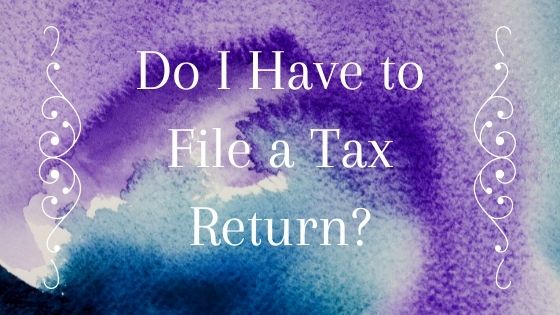Filing a tax return is a required part of being a responsible earner in New Jersey. There are a few exceptions depending on your income, filing status, and other specific exceptional circumstances. We’ll expound upon the exceptions below.
Income
The IRS puts forth new tax filing thresholds every year. For 2022, the gross income you can earn without having to file taxes is below:
Filing Status Gross Income (under 65) Gross Income (above 65)
Single $12,950.00 $14,700.00
Head of Household $19,400.00 $21,150.00
Married filing jointly $25,900.00 $28,700.00
Married filing separately $5.00 $5.00
Qualifying Widow $25,900.00 $27,300.00
If you are self-employed, you must file taxes if you earned more than $400.
For New Jersey, the filing requirements for income are different:
Filing Status Gross Income
Single $10,000.00
Married, filing separately $10,000.00
Married, filing jointly $20,00.00
Dependents
For dependents, specific rules determine whether or not they need to file. Dependent children who have earned income must submit tax returns. However, if they earn less than the above amounts, they will not need to file a return. To be considered a dependent, the child must live with the taxpayer, claiming them at least six months out of the year. They also cannot provide more than half of their own financial support. The dependent has to be under 19 years old at all times during the tax year OR below the age of 24 if they are a full-time student.
Other Circumstances
If you must pay special taxes, you must file taxes even if you do not meet the income requirements. Special taxes can include taxes on qualified retirement plans or taxes on tips that are unreported.
Even if you are not legally obligated to file taxes, it could be beneficial to do so. If taxes were withheld from you during a tax year, you could take the opportunity to file taxes and get that money back. You could still be eligible for tax credits and other benefits like the earned income tax credit or the child tax credit.
Consequences of Not Filing
Ignoring your obligation to file taxes can come with hefty consequences. If your tax return filing is more than 60 days late, the IRS can apply a late-filing penalty or a failure-to-file penalty. The late-filing penalty will be 0.5% of your unpaid taxes for each month you do not pay your taxes, plus interest. These penalties typically do not apply if you are expected to receive a refund. You have three years to file your return to receive the refund.
If you are not sure if you are required to file taxes, Halter CPA can help. We can help you understand the income requirements and determine if you withheld taxes or if you qualify for tax credits. This is the last week to file taxes on time for the 2022 tax year. Let us help you today!


